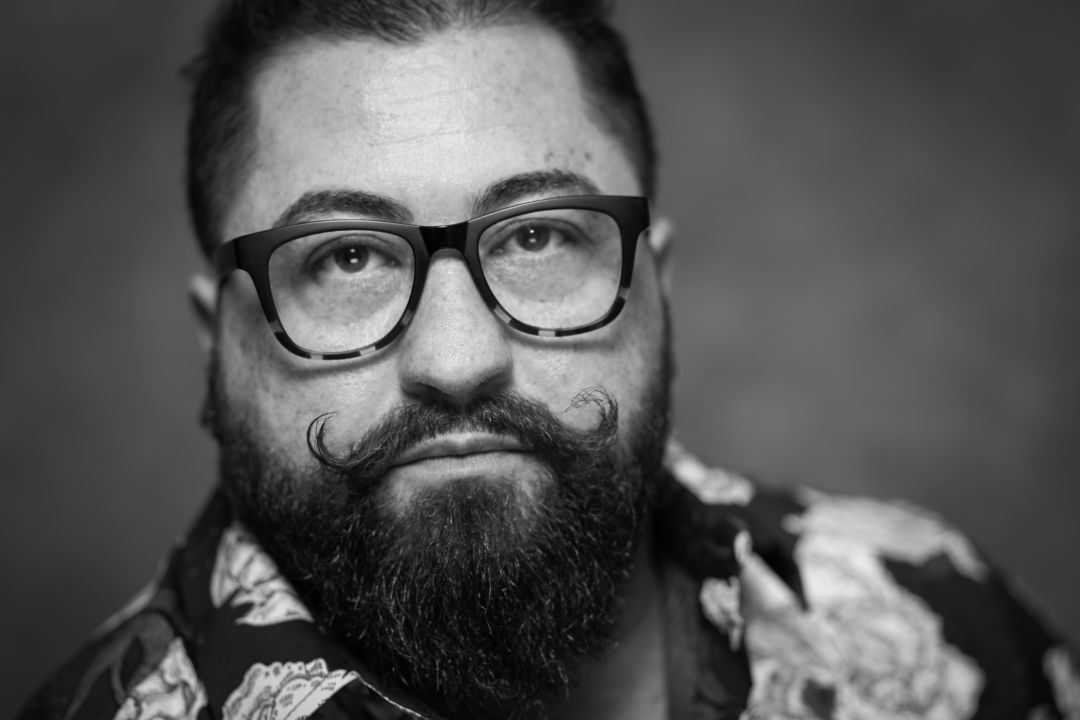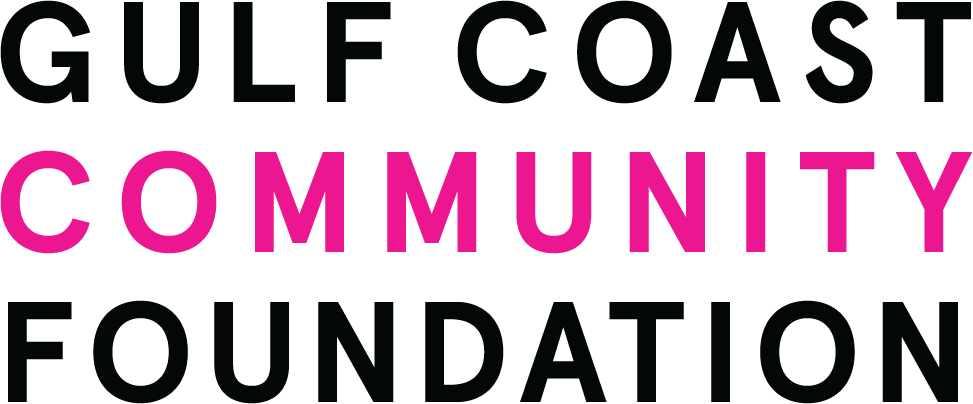Mason Gallo on Being Trans, Sexual Orientation and Equality
This article is part of the series Listening to Diverse Voices, proudly presented by Gulf Coast Community Foundation.

Mason Gallo
Image: Michael Kinsey
By the time Mason Gallo—whose pronouns are "he" or "they"—was in middle school, he knew that what he was seeing in the mirror didn’t match how he felt in his body. Gallo, now 43, began the transition from female to male at the age of 35. Now he is an operations manager for a health care company in St. Petersburg and vice-president of the Fabulous Arts Foundation (formerly the Harvey Milk Festival)—an annual arts festival to promote LGBTQ equality that is taking place in downtown Sarasota Sept. 23 to Oct. 2. Here’s his story.
Where did your journey begin?
“Originally from Flint, Michigan, the youngest of six siblings, I grew up in the ’80s and ’90s, very poor with a single parent, a mom. I always felt like I was just not visually in the right body. I didn’t know what that meant. Back then, being trans wasn’t known. The letter 'T' didn’t become part of LGB until the late ’90s or 2000. I never said anything about it and just lived with it.”
How old were you when you started to realize that female was not your gender?
“I was super young. I was in seventh or eighth grade. Just before high school. I knew I was different from the masses. It was awkward to look in a mirror. You see yourself differently. You ask, ‘Who am I?’ But I’d never heard of trans. I came out in my senior year of high school as a lesbian, but even during that time, I thought, ‘I’m a boy.’ It was a struggle I always had with myself. I was fearful of it. As I got older, I stumbled upon something on a website about transgender. I read about it and said, ‘Oh, I might be trans.’”
When did you finally decide to transition?
“In 2010 I was in a bad motorcycle accident in Sarasota. I was in a coma with a shattered pelvis and given a zero percent chance to survive. Doctors later told me I was a miracle, that I wasn’t supposed to be here. I was healing in the hospital and had a lot of time, and I did a lot of thinking. I felt like a big part of my life, I was living for other people and not myself. That’s when I decided to live my truth and do what makes me happy. I started doing a lot of research and figuring out the steps to transition. In 2011 I started going to therapy. I was 35.”
How did your friends and family react?
“My family was for the most part supportive. A lot of my trans friends have a hard time with their family, but I was fortunate enough that my siblings were supportive and were not surprised. That was a relief for me and one less thing I had to worry about.
“The hardest struggle was dealing with my what my gay circle thought about it. I lost some lesbian friends. One of them said it was a betrayal and asked, ‘Why do you need to transition? Why can’t you live as butch?’ They felt like I was betraying the lesbian community. They said, ‘You don’t need to have surgery to be male-presenting.’ I was shocked that someone in my community was struggling to accept this. That really took me aback. At first, I could understand the shock, but it was my own community. It amounted to not understanding. They were uneducated.”
Why did they feel threatened and angry?
“They felt like it was a betrayal. I’m a feminist, and they felt that I was betraying feminist beliefs. But anyone can be a feminist. It doesn’t matter if you’re male, female, non-binary [a person who does not identify as male or female]. I understand they think I was leaving something behind. But a lot is just a lack of education about what trans is.”
What does trans mean?
“Trans can be something different for everyone. Transgender is not seeing yourself as what you’re assigned at birth. That’s the general, quick snippet. Transgender means something to everyone individually because of various components. I started hormones and combined with surgery and changing my name, that’s when I felt 100 percent comfortable in my body. For other people, it might just be changing their name. For others, it might be hormones. For some, top surgery [breast removal for men]. For some, it’s the complete surgery, the whole kit and caboodle.”
This makes sexuality and sexual orientation feel fluid.
“Have you heard of the Kinsey scale? The Kinsey scale [developed in the 1940s to describe a person’s sexual orientation] talks about gender and sexuality. Everything is on a spectrum. People need to understand that things in life don’t have to be so binary, black and white, yes and no, male and female. Sexuality is more of a spectrum. Gender is a spectrum. How you present yourself and look is spectrum. Some people may wake up one day and they may want to present themselves as feminine.
“Sexuality is the same way. My sexuality has evolved. I have lived all variations of sexuality. If people would look more at sexuality in the Kinsey scale sort of way, it would help to bring more peace and understanding. It’s OK for someone who has a beard to wear a dress. It’s not weird or awkward. It’s just how they’re feeling for the day and that’s OK. What’s wrong with that? As long as they’re not hurting people or themselves. Differences and outside the norm make people uncomfortable and that’s where a lack of acceptance comes from. I think the media has a big place in helping people to better understand and to bring visibility. A normalization of putting that out there that we’re no different from anyone else. We’re a human being, too.”
Do you think the younger generation is more accepting?
“I do. There’s an evolution toward acceptance. Everything is more visible and being talked about. Younger people are putting themselves out there more. Remember, I grew up during the AIDs epidemic. The younger generation has social media and that has given them a platform and helped them to have a voice that gives them confidence. The Internet gives them resources at their fingertips. I think that’s wonderful. There are still a lot of struggles we have to overcome—we still have issues with gay men donating blood, for example—but definitely we’re going in a better direction.”
Does Sarasota support the trans community?
“I only lived in Sarasota for one and a half years and I wasn’t out as trans. I was a lesbian. St. Pete offers support and has a larger trans community. But I’ve seen Sarasota come a long way. I was part of the first Harvey Milk Festival [a group that promotes LGBTQ equality and has been renamed Fabulous Arts Foundation] and it’s completely different now. We just did the Sarasota Farmers Market. Wow. People were coming to the booth and asking questions, and it wasn’t like that back in 2010.”
Why should people care about trans issues?
“There’s a lack of equality. There’s still a fight, still so much we have to overcome for acceptance. Why are we still fighting over what bathroom people use or who plays sports? I do believe it’s a bigger issue—how we look at gender—that men are more superior. It boils down to inclusivity and equality and equity. We all deserve the same equal ground, no matter who we are. Period. Trans, gay, lesbian, Black. We have a lot of issues in our society that we need to overcome. Trans is just another part of that.”
Are you treated differently now that you're a male?
“Most organizations, even for women, you have to fight harder. You have to prove yourself more. I know. I was [a female] for much of my life. But now I have passability privileges. Things come a little bit easier because I’m treated differently, and it’s so wild to me. It’s a different tone now that I’m male-presenting rather than female.
“When I walk into a room or a meeting or when I’m speaking at a meeting, before I felt like I had to fight for a voice. I had to over-talk. I’ve always been a soft-spoken person, so I also tossed it up to, ‘Well, I have to assert myself more.’ Now that I have male features, I feel like when I speak, there’s silence. People listen, especially in a business situation. I find myself now being an advocate for women in the workplace. When I hear mansplaining, I try to give that person credit where it’s deserved. If a woman gets cut off, I say, ‘Have her finish.’ I’ve been in their shoes.”
What would you like people to remember?
“Just be open. And remember inclusivity. Let’s just include everyone. Let’s just do our best to treat people as humans, without worrying about what’s in their pants. What’s important is that we live in a society that encompasses kindness and compassion. Ask questions if you don’t know. We need to start normalizing differences. Put your pronouns out there. Here’s how to do that. Ask what someone’s pronouns are, or when you introduce yourself, say, ‘Hi, I’m Mason Gallo and my pronouns are… whatever.' Hopefully that person in response will say, ‘Hi, I’m so and so and my pronouns are.’ Be visible about the things that people don’t want to talk about.”




